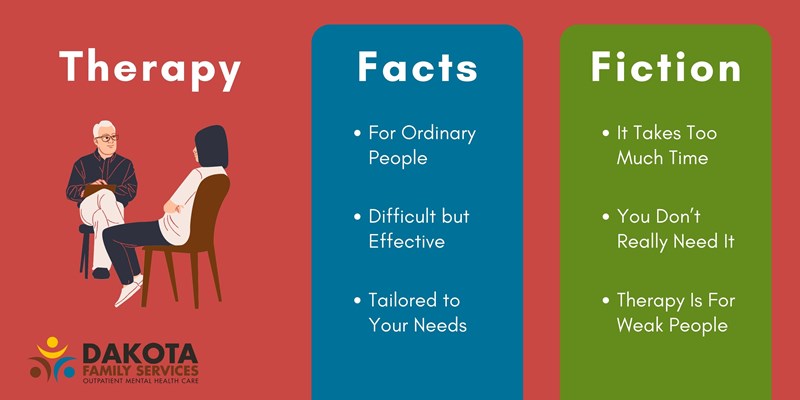Opening the Keys of Mental Health And Wellness: An Introduction of Therapy and Therapy Choices
Mental wellness is a facility and crucial element of overall well-being. Many counseling and therapy options exist to resolve numerous psychological obstacles. Each method supplies special benefits and approaches tailored to specific needs. Understanding these options is important for any person looking for to improve their psychological wellness. Cognitive Behavioural Therapy. What variables should one consider when exploring these opportunities? The answer may reveal a path to a healthier mood
Recognizing Mental Wellness and Its Relevance
Psychological wellness encompasses the psychological, emotional, and social health of individuals, significantly influencing how they assume, really feel, and act. Its value can not be overemphasized, as it impacts every aspect of life, consisting of partnerships, job efficiency, and total lifestyle. People with good psychological wellness tend to cope with stress better, preserve much healthier partnerships, and make informed choices. On the other hand, inadequate psychological health and wellness can result in emotional distress, damaged performance, and numerous mental illness, which might call for specialist intervention. Comprehending mental health is vital for acknowledging the indications of distress and the need for support. Awareness likewise advertises compassion and lowers stigma, encouraging individuals to look for aid when essential. By prioritizing mental health and wellness, neighborhoods can cultivate atmospheres that sustain psychological health, inevitably leading to much healthier, more durable people. This foundation functions as a critical action toward reliable psychological wellness counseling and therapy alternatives.
Types of Counseling Approaches
Counseling methods differ commonly, each tailored to meet the special demands of people looking for support. Amongst the most typical kinds are cognitive-behavioral treatment (CBT), which concentrates on recognizing and changing adverse idea patterns, and person-centered treatment, which stresses compassion and acceptance. Psychodynamic treatment checks out past experiences and subconscious processes to recognize existing actions, while solution-focused quick treatment intends to identify solutions as opposed to check out problems.Additionally, family treatment addresses relational dynamics and communication within households, promoting healthier communications. Team counseling offers a common room for participants to share experiences and sustain each other. Other approaches include existential treatment, which urges people to find meaning and objective, and art or songs treatment, which uses creative expression as a therapeutic device. Each approach provides unique methods and ideologies, permitting clients to find one of the most ideal technique for their individual growth and healing journeys.
Discovering Different Therapy Techniques
In the domain name of mental wellness therapy, numerous treatment techniques offer unique methods to therapy. Cognitive Behavioral Therapy stresses the connection between behaviors and thoughts, while Psychodynamic Treatment checks out unconscious influences on emotional wellness. In Addition, Mindfulness-Based Methods advertise present-moment recognition as a way to improve emotional law and total psychological wellness.
Cognitive Behavioral Therapy
Cognitive Behavior Modification (CBT) attracts attention as one of one of the most commonly exercised and researched methods in mental health and wellness treatment. This strategy concentrates on the interconnection in between feelings, thoughts, and actions, stressing that changing unfavorable thought patterns can result in enhanced emotional wellness and behavioral adjustments. CBT is structured, generally entailing a minimal number of sessions, and aims to outfit individuals with sensible abilities to manage their signs and symptoms. It works for a variety of problems, including anxiety disorders, depression, and trauma. By utilizing strategies such as cognitive restructuring and direct exposure therapy, CBT cultivates resilience and equips customers to confront challenges head-on, making it an important choice in the landscape of mental health and wellness treatments.
Psychodynamic Treatment Methods
Psychodynamic treatment strategies supply a deep expedition of the subconscious mind and its influence on habits and emotional wellness. Rooted in Freudian theory, these approaches emphasize the relevance of very early youth experiences and subconscious disputes. Via techniques such as free association, dream analysis, and transfer, people get understanding into their sensations and thoughts, fostering self-awareness and understanding. This healing technique motivates clients to reveal repressed feelings and unsolved concerns, which can be crucial in addressing present mental difficulties. By checking out the interplay in between previous experiences and present actions, psychodynamic therapy aims to promote emotional healing and personal growth. Eventually, it provides a structure for individuals to check out complicated internal dynamics that affect their mental wellness.

Mindfulness-Based Strategies
While typical treatments usually concentrate on past experiences, mindfulness-based strategies prioritize present-moment awareness as a path to psychological wellness. These techniques, consisting of mindfulness-based cognitive treatment (MBCT) and mindfulness-based stress and anxiety reduction (MBSR), urge individuals to involve completely with their thoughts and feelings without judgment. Practitioners find out to observe their mindsets, fostering a higher understanding of psychological triggers and responses. This practice not just minimizes symptoms of anxiety and clinical depression but additionally boosts general psychological strength. By integrating mindfulness exercises, such as reflection and deep breathing, customers grow a feeling of tranquility and clarity. Inevitably, mindfulness-based techniques encourage individuals to browse life's difficulties with boosted understanding and approval, promoting a much healthier relationship with their feelings and thoughts.
The Role of a Specialist or Therapist
A knowledgeable specialist or therapist plays a necessary role in sustaining people via their psychological health journeys. They provide a secure, non-judgmental space where customers can reveal their ideas and sensations openly. Marriage Counselling. By employing numerous therapeutic techniques tailored per person's demands, therapists aid clients check out underlying concerns that may add to their mental wellness challenges.Therapists supply support and devices to deal with tension, anxiousness, depression, and other emotional problems. Their training equips them to identify patterns in behavior and thought processes, helping with insights that bring about personal development. They likewise promote a solid healing alliance, which is essential for successful outcomes.Moreover, specialists continue to be dedicated to privacy and ethical criteria, ensuring a relying on atmosphere. Ultimately, the duty of a therapist or counselor is to encourage people, motivating them to establish resilience and healthier coping techniques while steering with life's complexities
How to Pick the Right Counseling or Therapy Choice
Choosing the ideal counseling or therapy choice begins with reviewing specific needs. It is vital to understand individual difficulties and goals prior to exploring various treatment styles. This fundamental action can greatly affect the efficiency of the selected strategy.
Evaluate Your Needs

How can individuals efficiently examine their mental health requires when assessing counseling or therapy alternatives? They should reflect on their emotional state and identify particular issues, such as anxiety, partnership, or depression difficulties. Journaling can be a helpful tool for tracking thoughts and feelings with time. In addition, individuals might take advantage of seeking responses from relied on close friends or relative concerning regarded adjustments in actions or state of mind. It is additionally useful to assess personal objectives for treatment, such as improving coping abilities or gaining understanding right into personal patterns. Lastly, researching different counseling techniques and their suitability for certain demands can aid in making an informed selection. Inevitably, self-awareness plays an essential duty in picking the right path for psychological health assistance.
Check Out Therapy Styles
While going across the diverse landscape of treatment options, individuals need to take into consideration numerous styles of counseling to locate the very best fit for their distinct needs. Cognitive Behavioral Treatment (CBT) concentrates on changing adverse idea patterns, while Psychodynamic Therapy explores previous experiences and subconscious processes. Humanistic approaches emphasize individual growth and self-actualization, promoting a supportive environment. Furthermore, mindfulness-based treatments cultivate present-moment understanding, assisting psychological policy. For those seeking framework, Solution-Focused Short Therapy targets certain objectives and services. Group treatment supplies a common setup for shared experiences and assistance. Eventually, individuals should certainly reflect on their choices, comfort levels, and details obstacles, ensuring they choose a therapeutic design that resonates with their individual trip towards psychological health.
Overcoming Obstacles to Looking For Assistance

The Benefits of Therapy and Therapy for Psychological Wellness
Seeking assistance for psychological health difficulties can lead to substantial enhancements in general well-being. Counseling and therapy offer people with a safe space to discover their sensations and ideas, fostering self-awareness and individual development. These specialist solutions equip clients with coping methods and analytical abilities tailored to their one-of-a-kind situations.Moreover, therapy can lower symptoms of anxiousness, anxiety, and various other psychological wellness problems, boosting psychological resilience. Normal sessions promote responsibility and motivate individuals to establish and accomplish personal objectives. With various healing modalities, such as cognitive-behavioral treatment or mindfulness practices, clients find out to reframe adverse thoughts and develop much healthier behaviors.Additionally, the therapeutic connection itself can be a resource of support, helping to battle seclusion and solitude. Overall, taking part in counseling and therapy is a proactive action towards attaining mental wellness, making it possible for individuals to lead more fulfilling lives.
Frequently Asked Questions
Just How Long Does Counseling or Treatment Typically Last?
The period of therapy or therapy differs significantly, commonly lasting from a few sessions to a number of months or years. Aspects affecting this include the individual's particular demands, the type of therapy, and restorative objectives.
What Should I Expect Throughout My Initial Session?
During the first session, people can expect an intro, conversation of issues, and the specialist's method. They might finish evaluations and develop objectives, cultivating a risk-free atmosphere for open communication and building relationship.

Exist Any Kind Of Risks Connected With Treatment?
Treatment can involve risks, such as psychological pain, vulnerability, or challenging excruciating memories. While these obstacles might develop, they can also result in individual growth and healing, making the restorative procedure complex yet possibly gratifying.
Just How Can I Tell if My Therapist Is a Great Fit?
Figuring out if a therapist is a good fit includes examining convenience, communication design, and therapeutic approach. Favorable connection and development towards objectives are signs of an appropriate suit, vital for effective mental health assistance.
Will My Insurance Cover Therapy or Therapy Procedure?
Identifying insurance coverage for therapy or therapy sessions typically needs calling the insurance policy company directly. Plans differ substantially, so people ought to verify advantages, co-pays, and any type of essential pre-approvals before pursuing therapy solutions. Amongst the most common kinds are cognitive-behavioral treatment (CBT), which focuses on identifying and transforming adverse idea patterns, and person-centered therapy, which emphasizes empathy and acceptance. Psychodynamic therapy checks out unconscious processes and previous experiences to recognize present habits, while solution-focused quick treatment aims to recognize remedies instead than examine problems.Additionally, family therapy addresses relational dynamics and interaction within families, promoting healthier Mental Health Resources communications. Other strategies include existential therapy, which urges people to find meaning and objective, and art or songs therapy, which uses creative expression as a healing tool. Cognitive Behavior Treatment stresses the connection between ideas and behaviors, while Psychodynamic Therapy checks out subconscious influences on psychological wellness. Cognitive Behavior Treatment (CBT) focuses on changing unfavorable thought patterns, while Psychodynamic Therapy discovers subconscious procedures and previous experiences.